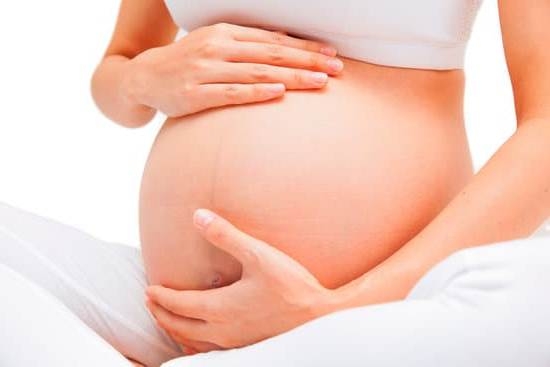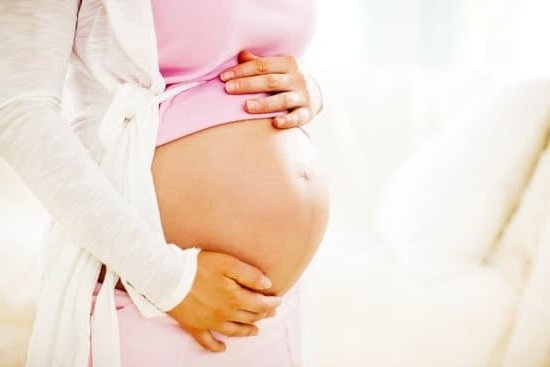Introduction
Drinking alcohol during the first weeks of pregnancy can pose serious health risks to an unborn child. The methodology of how this risky behavior affects an embryo is not completely understood, as it is difficult to study without putting the fetus at further risk. However, numerous studies suggest there is a link between drinking alcohol in the early stages of pregnancy and harm to the baby.
The Centre for Disease Control (CDC) defines excessive drinking during pregnancy as more than 8 drinks a week or having more than four drinks on any given occasion. It also defines binge-drinking as having five or more drinks on one occasion, or within two hours. These definitions indicate that any amount of alcohol in early pregnancy poses a potential hazard and should be avoided whenever possible.
The risks are especially high during the first trimester because an embryo’s organs are forming and it is particularly vulnerable to harm from toxins, such as alcohol. Prenatal exposure to alcohol can lead to miscarriage, stillbirth, low birth weight, intellectual disabilities, and physical abnormalities like dysmorphology (a condition characterized by abnormal growth). Moreover, prenatal alcohol exposure can cause Fetal Alcohol Spectrum Disorders (FASD), which consist of mental and physical birth defects linked with prenatal alcohol exposure.
Physical abnormalities related to FASD may include low height and weight; distinct facial features; organ defects; vision or hearing impairments; cardiac problems; or difficulty moving their limbs normally due to neurological issues. Developmental delays including cognitive abilities such as memory problems, thinking difficulties and slower language development may also result from fetal alcohol exposure.
Ultimately abstinence from alcohol use while pregnant or trying to become pregnant is highly recommended because there is no proven safe level of drinking during early pregnancy or throughout gestation periods.
Understanding the Risks
Drinking alcohol during the first few weeks of pregnancy can significantly increase the risk of having a baby with fetal alcohol syndrome (FAS). FAS is a serious condition that can result in physical and mental impairments. Alcohol crosses through the mother’s placenta to the fetus and essentially begins to affect its development immediately. Even if a woman stops drinking once she knows she’s pregnant, the damage has already been done and cannot be reversed.
The number of drinks consumed and the type of alcoholic beverage will determine how harmful it is for a fetus. Since alcohol affects each individual differently, it’s suggested that women avoid any amount of alcohol during pregnancy according to The Centers for Disease Control (CDC) . It notes that there is no known safe level or type of alcohol consumption at any stage in a woman’s pregnancy. This means zero drinks as opposed to counting how many drinks are okay. For example, one 10-ounce beer contains about as much alcohol as 12 ounces of wine or 8 ounces of malt liquor, but they all constitute drinking in this context.
In short, drinking any type or amount of alcoholic beverages — even just one — can be significantly detrimental to a developing baby. For this reason, the CDC suggests completely abstaining from drinking while trying to conceive or throughout the entire period of pregnancy due to potential risks involved.
Health Consequences
Drinking alcohol during the first weeks of pregnancy can have serious health consequences for both mother and baby. For the mother, consuming alcohol can lead to short-term physical effects such as nausea, headaches and riskier medical complications that could potentially harm the developing baby. Additionally, drinking during early pregnancy can put expecting mothers at increased risk for major psychological and emotional disturbances that can last not only throughout their pregnancy but also long after delivery.
For the unborn baby, consuming alcohol during the first weeks of pregnancy can have even more dire and lasting effects on the developing body and brain. According to one study conducted by researchers at Birth Defects Research journal in 2013, pregnant women who consume 3-4 alcoholic beverages per week during the first trimester increase their child’s risk for Fetal Alcohol Syndrome (FAS). FAS is a disorder caused by prenatal exposure to alcohol which results in physical abnormalities and impaired mental development in babies. These impairments may include poor physical growth, facial deformities, poor coordination, problems with attention and working memory, learning disabilities, hearing impairment or vision problems. Additionally, a variety of behavioral disorders such as impulsive behavior or temper tantrums associated with hyperactivity or attention defecit hyperactivity disorder (ADHD) may occur in children if exposed prenatally to excessive amounts of alcohol from inside the womb. The long-term consequences of drinking during these crucial early stages of fetal development are irreversible therefore emphasizing further why it is so important for expecting mothers to be aware of these risks before making any decisions about drinking while pregnant.
Birth Defects
Alcohol consumption during the first weeks of pregnancy can lead to an array of birth defects, many of which are referred to as Fetal Alcohol Spectrum Disorders (FASDs). FASD is a term used to describe a range of disabilities that can stem from prenatal exposure to alcohol. These disabilities can include physical abnormalities, impaired intellectual and neurodevelopmental functioning, behavioral problems, and mild to severe mental health problems.
Physical abnormalities can range anywhere from facial malformations such as smaller than average eyes and head size, thin upper lip, smooth philtrum groove, upturned flattened nose bridge, wide-set eyes, heart defects or congenital anomalies. Impaired neurodevelopmental functioning means poor organization skills in areas like social interaction and problem solving along with slow visual-motor integration and poor abstract reasoning skills.
Behaviorally speaking children exposed prenatally to alcohol may display challenging behaviors like impulsivity, hyperactivity and aggression. In general people living with FASD or prenatal alcohol exposure have difficulty focusing in school due to their difference in brain wiring makes it nearly impossible for them to process information the same way their peers do. Additionally there are often mental health issues related suicide ideation among those who live with FASD making it difficult for them engage in meaningful relationships with others.
Prevention
Drinking alcohol during pregnancy can cause a range of serious birth defects including fetal alcohol spectrum disorders. It is important to take every precaution against alcohol consumption during this critical period in development for the unborn baby.
The first weeks of pregnancy are especially crucial as it is the period when the baby’s organs begin to form and any disruption can cause significant harm to the baby’s health. Therefore, drinking during early pregnancy should be heavily discouraged by both medical professionals and family members for pregnant women.
For pregnant women with a history of heavy alcohol consumption, it is even more essential to abstain from drinking throughout the entirety of their pregnancy. There are many professional resources that can help those in need such as Alcoholics Anonymous or specialized counseling services that focus on substance abuse.
Moreover, here are some useful tips on how to stay away from alcohol-containing drinks during pregnancy: Don’t keep any alcohol in your home, avoid bars, parties or other places where drinks may be served, stay busy with activities or hobbies that don’t involve consuming alcohol, find social support systems like family and friends who understand your situation and can be supportive, consult with a physician if needed, and keep positive long-term goals like having a healthy and happy child in focus at all times!
First Person Experiences
There is a great deal of stigma around drinking alcoholduring the first weeks of pregnancy, as many women worry about how it will affect the developing fetus. Interviews with pregnant women who have struggled with alcoholism reveal that some can’t kick the habit even when they find out they’re pregnant. Many explain that they felt immense guilt and regret upon learning they had been drinking while pregnant. This regret can be compounded if the partner or family member of the woman was also abusing alcohol during her pregnancy. For example, one woman made a document on her phone to register any drinks she had consumed since she became pregnant. She pretended to take sips of her partner’s beer, even though she was sober. “It was awful,” said the woman, “I wanted so badly to stop him from drinking, but I couldn’t bring myself to confront him.” In another case, a man refused to believe his partner when she mentioned her concerns about him drinking during her pregnancy. He would shrug off the issue by telling her not to worry and make light of it in an attempt to stop discussing it further. These cases demonstrate that even if one does not actively drink alcohol during early pregnancy, their experience can still be negatively affected by a loved one’s misuse of alcohol.
Conclusion
The potential effects of drinking alcohol during early pregnancy are serious and can affect the health of both the mother and baby. It is important to be aware of how alcohol consumption can impact a developing baby, as well as the ways in which it may influence your own physical and mental wellbeing. If you are concerned that you may have been drinking during the first weeks of pregnancy, speak to a health professional for advice and support. Adopting healthy habits including abstaining from alcohol may help to ensure both your and your baby’s health throughout the remainder of your pregnancy journey. Take some time to educate yourself about the risks associated with drinking, so that you know what expect and how to best care for yourself if a situation arises where you think you may have consumed any amount of alcohol during early pregnancy. Make sure to speak openly with other members of your family or close friends who may be able to offer insights or advice when thinking through further steps. Be sure to seek feedback from trusted individuals on potential ways they could help provide psychological or emotional support while navigating this potentially difficult conversation. Finally, regardless of how far along in your pregnancy you are, it is vital to remember that abstaining from any amount of alcohol is recommended for pregnant women to counteract any potential harm that could occur due to excessive drinking during any stage.

Welcome to my fertility blog. This is a space where I will be sharing my experiences as I navigate through the world of fertility treatments, as well as provide information and resources about fertility and pregnancy.





